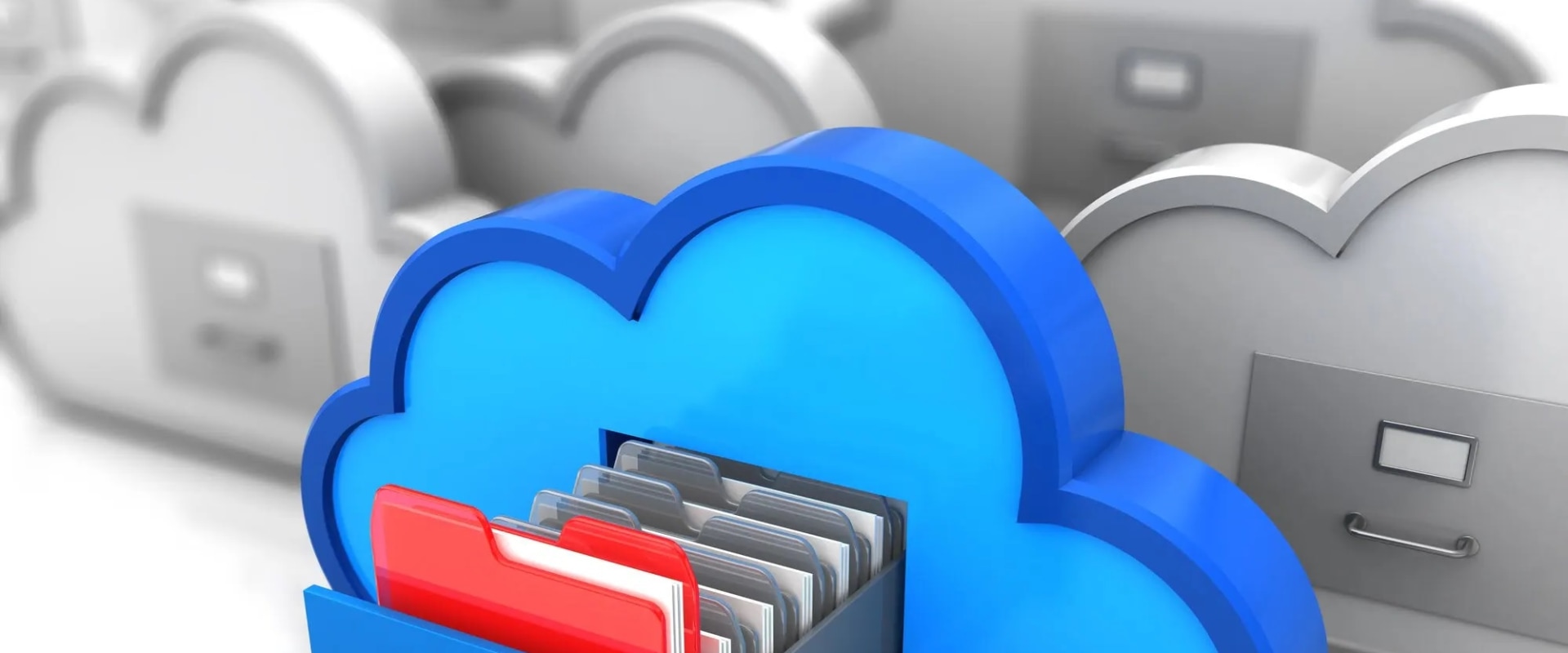As online threats grow more advanced and malicious, secure data storage solutions have become increasingly important for businesses and individuals alike. With the ability to store and protect sensitive information, secure data storage solutions can help keep your data safe from hackers, viruses, and other security risks. This article provides a comprehensive overview of secure data storage solutions, from cloud-based solutions to on-premises solutions. We will explore the benefits of each option, as well as the potential risks.
By the end of this article, you will have a better understanding of the options available and how to choose the right solution for your needs.
Secure Data Storage Solutions
: A Comprehensive Overview. Data storage solutions have become increasingly important in the digital age. As more of our personal and financial information is shared online, it is critical to ensure that our data is kept secure. This article will discuss the different types of data storage solutions available, the key security considerations for data storage, and the steps that can be taken to protect your data from malicious actors. The main types of data storage solutions are cloud-based, local, and hybrid systems.Cloud-based solutions are hosted remotely by a provider and allow users to access their data from anywhere with an internet connection. Local solutions are hosted on-premise or on a local server and are typically more secure than cloud-based solutions. Hybrid systems combine both cloud-based and local solutions, allowing users to take advantage of the scalability of cloud-based services while still maintaining control over their data. No matter which type of data storage solution you choose, security should be a primary concern.
Key security considerations include encryption, access control, authentication, and monitoring. Encryption is the process of scrambling data so that it can only be accessed with a secret key or code. Access control ensures that only authorized individuals can access the data. Authentication verifies the identity of the user trying to access the data and prevents unauthorized access.
Finally, monitoring helps detect any suspicious activity or potential breaches. In addition to these security measures, there are other steps that can be taken to protect your data from malicious actors. Using strong passwords and two-factor authentication is an effective way to protect your data from unauthorized access. Additionally, monitoring your activity on public networks and avoiding unsecured connections can help protect your data from malicious actors. Finally, making sure your software is up to date can help prevent malicious code from being installed on your system.
Best Practices for Data Storage
.There are several best practices that can help ensure that your data is stored securely. Using strong passwords and two-factor authentication can help protect your data from unauthorized access. Additionally, using secure connections (e.g. HTTPS) when accessing public networks can help protect your data from malicious actors.
Furthermore, installing anti-malware software and making sure your software is up to date can help prevent malicious code from being installed on your system.
How to Choose the Right Data Storage Solution
. When choosing a data storage solution, it is important to consider several key factors such as cost, scalability, security features, and ease of use. Cloud-based solutions are usually less expensive than local solutions but may not offer as much control over the security of the data. Local solutions are more secure but may not be as scalable as cloud-based solutions.Hybrid solutions offer a combination of cost savings and scalability while still providing a high level of security for your data. Ultimately, choosing the right data storage solution depends on your needs and budget. Consider the benefits and drawbacks of each type of solution before making a decision. Think about what features are most important for you and how much control you need over your data security. With careful consideration, you should be able to find a solution that meets your needs while keeping your data secure.
Security Considerations for Data Storage
Data storage solutions have become increasingly important in the digital age, as more of our personal and financial information is shared online.It is essential to ensure that our data is kept secure, and understanding the key security considerations for data storage is an important step in protecting our data from malicious actors. The most important security considerations for data storage include encryption, access control, backup and disaster recovery plans, and monitoring and logging. Encryption is a critical element of data security, as it scrambles data into an unreadable form to protect it from unauthorized access. Access control ensures that only authorized users can access the data, and can be implemented through authentication protocols such as passwords or biometrics. Backup and disaster recovery plans help protect against data loss in the event of a system failure or attack, while monitoring and logging provide visibility into who is accessing the data and when. These security considerations are essential for protecting data stored in online databases or other cloud-based services.
Implementing these measures can help protect against unauthorized access, data loss, or malicious attacks. Organizations should ensure that they have adequate security measures in place to protect their data and ensure its availability and integrity.
Types of Secure Data Storage Solutions
Types of Secure Data Storage SolutionsSecure data storage solutions can be broadly divided into two categories: cloud-based and local. Cloud-based data storage solutions involve storing data on remote servers, while local data storage solutions involve storing data on an individual device, such as a computer or hard drive. Each type of solution has its own advantages and disadvantages, and it is important to understand the differences between them in order to make an informed decision about which type of data storage solution is best for you.Cloud-Based Data Storage Solutions
Cloud-based data storage solutions involve storing data on remote servers owned and operated by a third-party provider.These solutions are often cheaper than local solutions, as you do not need to purchase any hardware or invest in additional software. However, there is a risk associated with storing your data on a third-party server as it can be vulnerable to cyberattacks. It is important to select a reputable provider that has strong security measures in place to protect your data.
Local Data Storage Solutions
Local data storage solutions involve storing data on an individual device, such as a computer or hard drive. These solutions are often more secure than cloud-based solutions, as the data is stored on the device and not on a third-party server.However, local storage solutions require an upfront investment in hardware and software, and they can be prone to physical damage or loss. It is important to select a reliable device with sufficient storage space to ensure that your data remains safe.
Protecting Your Data
Regardless of the type of data storage solution you choose, there are a few steps you can take to protect your data from malicious actors. First, it is important to use strong passwords for all your accounts and ensure that your passwords are changed regularly. Additionally, you should always keep your devices and software up to date with the latest security patches.Finally, you should consider investing in a reliable antivirus program to ensure that your data remains secure.
Choosing the Right Data Storage Solution
When it comes to choosing a secure data storage solution, there are several key factors to consider. Cost, scalability, and security features are all important elements to consider when selecting the right solution for your needs. In addition, the type of data storage solution you choose will have its own unique benefits and drawbacks. Cost is an important factor to consider when selecting a data storage solution. Depending on the size and complexity of your data storage needs, different solutions may be more cost effective.Additionally, the cost of implementing a data storage solution can vary depending on the provider and the type of solution. Scalability is also an important factor to consider when selecting a data storage solution. You will want to make sure that the solution you select can handle your current and future data storage needs. Additionally, some solutions may have features that allow for automated scaling to meet changing demands. The security features of a data storage solution are also important to consider. You will want to make sure that the solution you select has all of the necessary features to keep your data safe from malicious actors.
This includes encrypting your data, utilizing authentication methods, and ensuring that access is restricted to authorized personnel. Finally, you will want to consider the benefits and drawbacks of each type of data storage solution before making a decision. Different solutions may offer different levels of performance, reliability, scalability, and security. It is important to weigh these factors carefully before making a decision.
Best Practices for Data Storage
When it comes to data storage, the most important thing to remember is to always keep your data secure. There are a few key steps you can take to ensure that your data is safe from malicious actors.Two-Factor Authentication:Two-factor authentication is a great way to protect your data from unauthorized access. It adds an extra layer of security by requiring an additional code or token in order to access your account. This means that even if someone were to gain access to your username and password, they would still need the additional authentication code or token in order to gain access.
Secure Passwords:
Using strong passwords is one of the most effective ways to protect your data.Strong passwords should be at least eight characters long and should include a combination of letters, numbers, and special characters. Avoid using the same password for multiple accounts and change your passwords regularly.
Secure Connections:
When accessing sensitive information online, make sure you are using a secure connection. A secure connection will encrypt any data that is transmitted, making it difficult for malicious actors to access your information.Be sure to look for the “https” at the beginning of the URL when accessing any sensitive websites.
Avoiding Public Wi-Fi:
Public Wi-Fi networks are not secure and should be avoided whenever possible. If you must use public Wi-Fi, be sure to use a virtual private network (VPN) as an extra layer of protection. This will help keep your data safe from prying eyes.Data Backup:Finally, it is important to regularly back up your data. This will ensure that even if something were to happen to your computer or device, you would still have a copy of your data stored safely elsewhere. In conclusion, secure data storage solutions are essential for protecting your data from malicious actors in the digital age. When choosing a secure data storage solution, it is important to consider factors such as cost, scalability, and security features in order to find the best solution for your needs. Additionally, there are a number of best practices that can be implemented to ensure your data remains secure, such as using strong passwords and monitoring activity.
By taking these steps, you can ensure that your data is safe and secure in the digital world.







